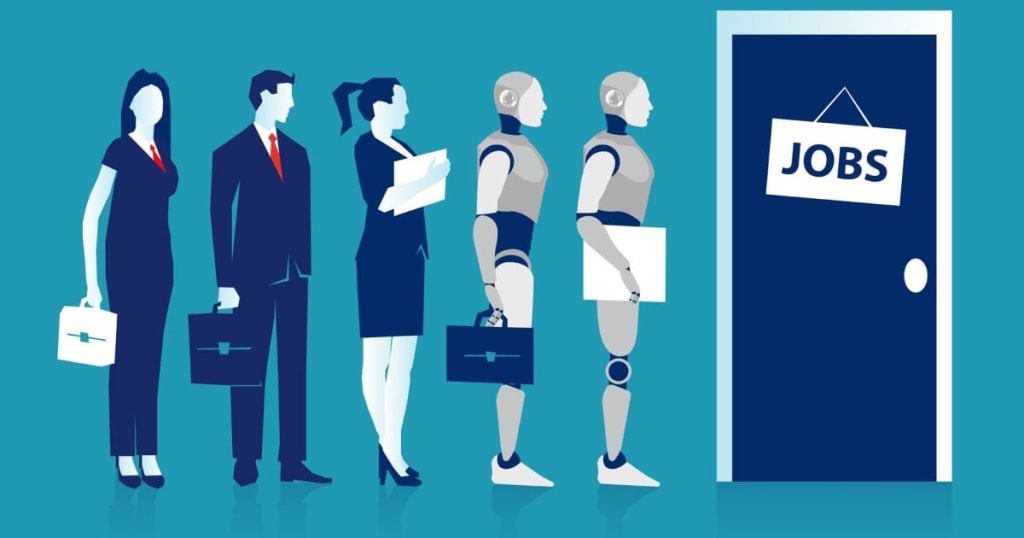
Artificial Intelligence (AI) has become a transformative force across industries, revolutionizing the way we live and work. As AI technologies continue to advance, their impact on the job market cannot be ignored. While AI offers numerous benefits and opportunities, it also raises concerns about automation and job displacement. This article explores the impact of AI on the job market, highlighting both the challenges and opportunities that lie ahead.
The Rise of Automation:
One of the primary concerns surrounding AI is the potential for job displacement through automation. As AI systems become increasingly sophisticated, they can perform repetitive tasks more efficiently and accurately than humans. This automation has the potential to disrupt several sectors, particularly those with routine and predictable job functions. Manufacturing, transportation, and customer service are among the industries that have already witnessed significant changes due to AI-driven automation.
However, it's essential to note that while AI may eliminate certain jobs, it also creates new roles and opportunities. The key lies in reskilling and upskilling the workforce to adapt to the changing demands of the job market.
Reskilling for the Future:
As AI reshapes the employment landscape, reskilling and upskilling become crucial for individuals seeking to remain competitive in the job market. Jobs that require uniquely human skills, such as creativity, critical thinking, emotional intelligence, and complex problem-solving, are expected to be in high demand. Consequently, individuals should focus on developing these skills to complement AI technologies rather than competing against them.
Moreover, governments, educational institutions, and businesses need to collaborate in providing accessible and affordable training programs to help workers transition into AI-related roles. Initiatives such as online learning platforms, vocational training programs, and partnerships between universities and industries can play a pivotal role in equipping individuals with the necessary skills for the AI-driven job market.
The Rise of AI-Augmented Jobs:
While AI may automate certain tasks, it also has the potential to augment human capabilities, leading to the creation of new job roles. AI can assist professionals by automating mundane tasks, improving efficiency, and providing valuable insights from vast amounts of data.
For example, in healthcare, AI can help doctors make more accurate diagnoses and develop personalized treatment plans. In finance, AI-powered algorithms can analyze market trends and recommend investment strategies. In creative fields like marketing and content creation, AI can provide valuable data-driven insights for campaign optimization.
The key to harnessing the potential of AI-augmented jobs lies in collaboration between humans and machines. By leveraging AI as a tool to enhance productivity and decision-making, individuals can focus on higher-level tasks that require human intuition and creativity.
Ethical Considerations and Human Oversight:
As AI continues to advance, ethical considerations and human oversight become paramount. Ensuring fairness, transparency, and accountability in AI algorithms is crucial to avoid reinforcing biases or creating systems that are beyond human control.
Additionally, while AI can automate several tasks, the importance of human supervision and intervention cannot be understated. Ethical decision-making, empathy, and judgment are domains where humans excel. Therefore, striking the right balance between AI automation and human oversight is essential for harnessing the benefits of AI while maintaining human values and ethical standards.
Conclusion:
The impact of AI on the job market is undeniable. While there are concerns about job displacement, there are also significant opportunities for reskilling, upskilling, and the creation of new AI-augmented roles. As AI technologies continue to evolve, it is crucial for individuals, businesses, and governments to embrace a proactive approach in adapting to the changing job market. By fostering a culture of lifelong learning, collaboration, and responsible AI deployment, we can navigate the evolving landscape and leverage the potential of AI to create a better future of work.
About the Creator
SAKTHIVEL
Hi This is Sakthi, I give you Interesting and Exciting story about "Fitness", "Money Making" and "Relationship"






Comments
There are no comments for this story
Be the first to respond and start the conversation.